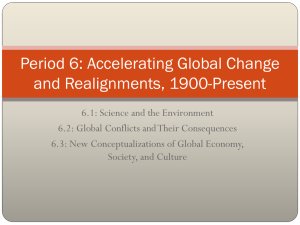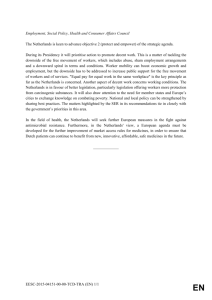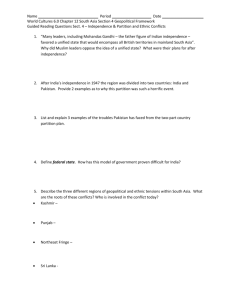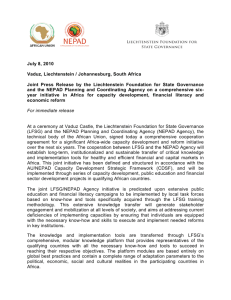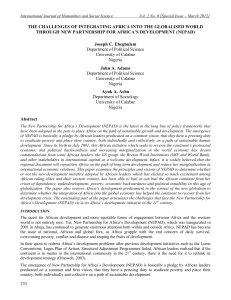Sarah Kline
advertisement
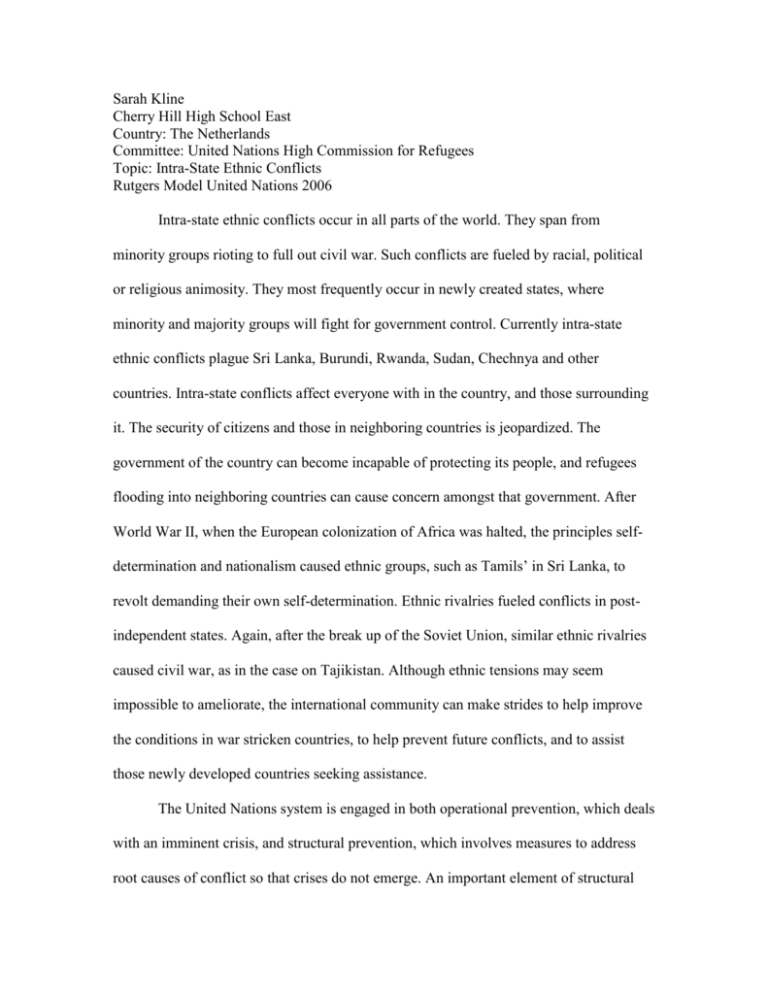
Sarah Kline Cherry Hill High School East Country: The Netherlands Committee: United Nations High Commission for Refugees Topic: Intra-State Ethnic Conflicts Rutgers Model United Nations 2006 Intra-state ethnic conflicts occur in all parts of the world. They span from minority groups rioting to full out civil war. Such conflicts are fueled by racial, political or religious animosity. They most frequently occur in newly created states, where minority and majority groups will fight for government control. Currently intra-state ethnic conflicts plague Sri Lanka, Burundi, Rwanda, Sudan, Chechnya and other countries. Intra-state conflicts affect everyone with in the country, and those surrounding it. The security of citizens and those in neighboring countries is jeopardized. The government of the country can become incapable of protecting its people, and refugees flooding into neighboring countries can cause concern amongst that government. After World War II, when the European colonization of Africa was halted, the principles selfdetermination and nationalism caused ethnic groups, such as Tamils’ in Sri Lanka, to revolt demanding their own self-determination. Ethnic rivalries fueled conflicts in postindependent states. Again, after the break up of the Soviet Union, similar ethnic rivalries caused civil war, as in the case on Tajikistan. Although ethnic tensions may seem impossible to ameliorate, the international community can make strides to help improve the conditions in war stricken countries, to help prevent future conflicts, and to assist those newly developed countries seeking assistance. The United Nations system is engaged in both operational prevention, which deals with an imminent crisis, and structural prevention, which involves measures to address root causes of conflict so that crises do not emerge. An important element of structural prevention entails improving political and economic governance. Free and fair elections are key in conflict prevention and post-conflict peace building. The countries of Liberia and Burundi held a series of successful elections during 2005. Along with the UN, the New Partnership for Africa’s Development (NEPAD) was created by Algeria, Egypt, Nigeria, Senegal, and South Africa by the Organization of African Unity (OAU) to develop an integrated socio-economic development framework for Africa. The goals of NEPAD are to eradicate poverty, place African countries, both individually and collectively, on a path of sustainable growth and development, halt the marginalization of Africa in the globalization process and enhance its full and beneficial integration into the global economy, and accelerate the empowerment of women. The UN supports NEPAD’s agenda, and will continue to do so until conflicts have been subdued. The Netherlands agrees with all the UN is doing to eradicate intra-state ethnic conflicts. It agrees with the goal of NEPAD, which included ending such conflicts by 2010. The Netherlands feels that the UN is and should remain the pillar of support for NEPAD. The Netherlands celebrates NEPAD for taking the initiative with in its own continent to prevent further devastation. The Netherlands also feels that greater effort is necessary to effectively address youth unemployment, the devastating social, economic and political impact of the HIV/AIDS crisis, the illicit exploitation of natural resources, and the illegal flows of small arms. The Netherlands suggests that this be added to the NEPAD agenda with support from the UN. The Netherlands also recognizes the role of the media in conflict prevention, peacekeeping and post-conflict peace building, and therefore encourages the continuation of such journalistic efforts. Furthermore, the Netherlands regrets any disruption they occurred after World War II in Africa. Lastly, the Netherlands urges African leaders to continue to lead normative and regulatory innovations on a regional level, development and good governance, and promotes the continued support of the international community through generous financial assistance and technical support.
